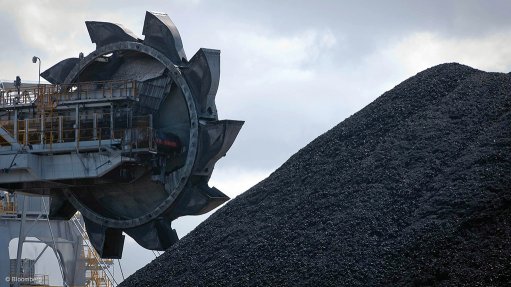
Photo by: Bloomberg
PERTH (miningweekly.com) – Billion-dollar coal developments planned in Queensland may be uneconomical, a new report by the Institute for Energy Economics and Financial Analysis (IEEFA) said.
The IEEFA noted that as Chinese demand for coal continued to slow, coal miners were turning their attention to India as a viable destination for their product. However, the report noted that the fundamental financial problems in the Indian coal and coal-fired generation sector were made “materially” worse when imported coal was used.
“This report is a wake-up call to global investors and industry, establishing the uneconomic basis of international coal projects which rely on India as a potential growth market,” IEEFA director of energy finance studies in Australasia Tim Buckley said.
He noted that coal imported to India from Australia’s Galilee basin would need a wholesale electricity price double India’s current level to be viable, and as such, it categorically discredits the argument that Australian imported coal might alleviate India’s energy poverty.
The Galilee basin was the proposed home for GVK Hancock’s A$10-billion Alpha coal project, which is slated to produce 32-million tonnes a year from an opencut operation over 30 years. The project holds a combined resource of eight-billion tonnes, and at peak capacity could produce 80-million tonnes a year.
The A$4.2-billion Kevin’s Corner coal project is also being developed by Indian conglomerate GVK, and will produce an estimated 30-million tonnes of thermal coal a year, over a 30-year life-of-mine. The underground and opencut operation will be located 65 km north-west of the proposed Alpha coal mine.
However, Buckley pointed out that the projects were extremely isolated and that they do not have access to required rail, water, power and port facilities.
“The cost of building the required infrastructure means the combined capital and operating costs of the coal mines will be uncommercial,” he added.
“India’s economic and financial situation creates further uncertainty for companies relying on its ability and willingness to import coal, with negative implications for India’s inflation, current account deficit and economic instability,” Buckley commented,
“A greater reliance on imported coal undermines India’s national energy security position and weakens its push for greater energy sector diversity.”